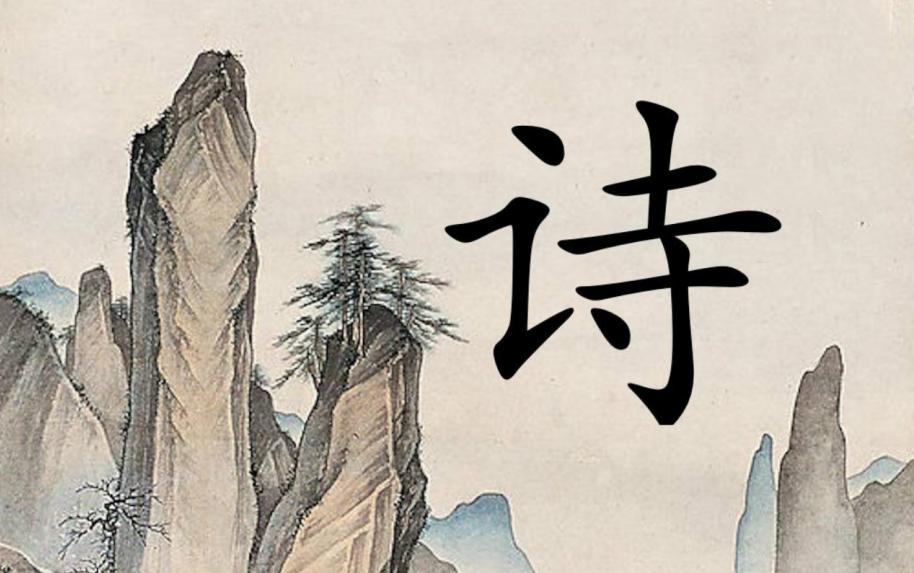Some words can make people happy, some words can make people sad, and some words can make people afraid. This frightening word is often the legendary "ghost word".
In our modern materialist view, ghosts certainly do not exist. In classical poetry, the reason why there are so many works of ghost writing is precisely because of the limitations of cognition at that time. Literati often regard some natural phenomena that they cannot understand as ghosts. Then, whenever I need to express some of my emotions in words, I also like to write about ghosts and gods.

For example, in Du Fu's works of pingsheng, there are famous sentences such as "there are many new ghosts in battle, and the old man who is sad and groans", "visiting the old half as a ghost, exclaiming hot intestines" and so on. The poet Li He is better at using some eerie words to express his nostalgia. Generally speaking, this kind of work is nothing more than borrowing ghosts to write about people, so in the author's opinion, it is not scary.
Until 10 years ago, the author who was still studying inadvertently read a "ghost word" from the Qing Dynasty. I remember that it was a night after the Mid-Autumn Festival, and the first time I read it, I had to admit that there were some words that could really make people sleepless. Until now, after so many years, I still dare not read it late at night, for fear of losing sleep again.
I have also asked some poetry fans and friends, and they all have similar ideas, and they all think that this is one of the most feared works in the literary world. Let's read it:
"Dotted Lips, Thin Grass Empty Forest"
Thin grass and empty forest, silk cold rain to pull the wind flakes. Thin and lonely, accompanied by a single child.
Lonely Fountain Terrace, tonight called out to the king. Hazy to see, the ghost lamp line, revealing the peach blossom face
The author of this song is named Huang Jingren, who is also a talented person, but he has been quite unlucky all his life. He lost his father at the age of 4 and was brought up by his grandmother and suffered a lot. Fortunately, I am very energetic, which makes me famous. At the age of 17, he began to run for his livelihood, but because he had no backing, he did not get a middle soldier or the like. It was not until the age of 32 that he became a small county clerk, but after two years of work, he died of illness.
Huang Jingren's life is very similar to Li He's, and his life is difficult; his personality is also similar to Li He's, very stubborn, and he will never bow his head for unfair things. When reflected in poetic works, they are often poor and sad.
His song "Dotted Lips" seems to be a ghost, but in fact it is still a lyric of his loneliness and loneliness. This was common among the Ming and Qing literati. But the point is that his ghost word is too graphic.
The upper part of the word renders a rather gloomy environment at the beginning. The grass is not luxuriant, and the fine grass in pairs flutters with the wind in an empty forest. A trace of cold rain also drifted down.
Such a scene can be higher than the black wind of the moon, and it is much more contagious, and in a trance we seem to be able to hear the rustle of the wind and grass. At this time, a "skinny lonely soul" appeared. Obviously, seemingly writing ghosts is actually writing about their own loneliness.
The next piece of the word, write what this ghost does and thinks. She shouted her lover's name over and over again, but she couldn't find the other person. Suddenly, the lamp hit her face, and a peach blossom appeared.
In classical literature, "peach blossom noodles" refers to the beauty of women. Generally speaking, the beauty described by these 3 words is sunny and natural, such as the Song Dynasty Jin Zhangzong's "borrow the dongting spring and fly on the peach blossom noodles". Therefore, when the "peach blossom noodles" appear on a female ghost that appears at night, a huge gap contrast has been formed.
This female ghost was also a beautiful woman, and she also had a true heart, but she could only love in the dry grass and empty forest. Obviously, this is the same situation as the situation of the writer who has not met Huai Cai. The difference is that she is suffering for love, and the lyricist is tired because of her livelihood.
In fact, there were many such "ghost poems" and "ghost words" in ancient times, and the reason why Huang Jingren's work can stand out is because it is written exquisitely enough. First, the rendering of the atmosphere has been in place, and the female ghost has appeared; second, it is not simply to write words to scare people, but to borrow female ghosts to refer to people, to borrow the suffering of female ghosts; third, the sentences are very concise, basically achieving a word that cannot be reduced. Such works are naturally worth reading. What do you think of this song? Discussion is welcome.